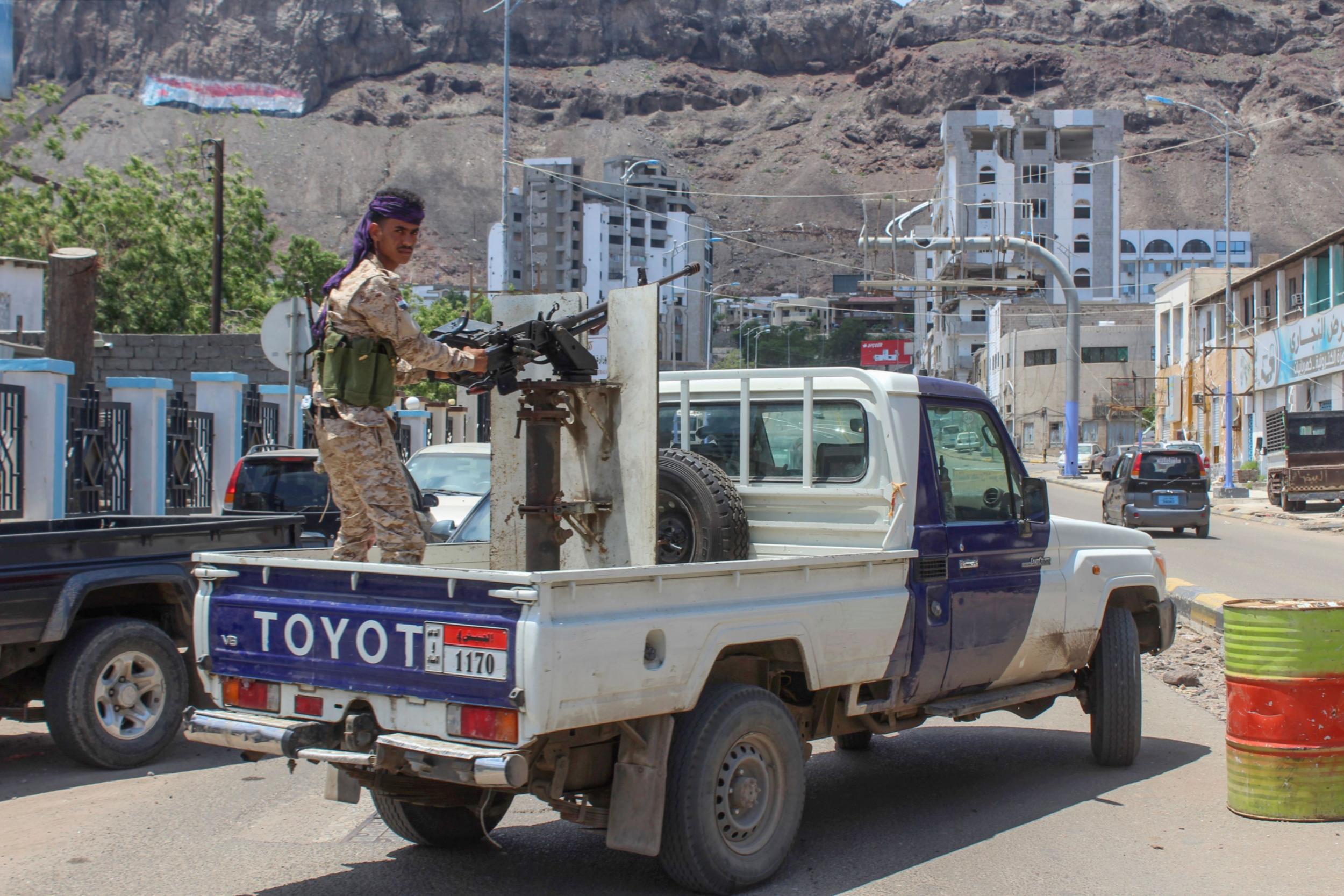Southern separatists in Yemen have staged a takeover of Aden – the seat of the country’s government – and declared self-rule, in a move decried by Saudi Arabia led military coalition and the country’s recognised government as a “coup”.
The Southern Transitional Council (STC), whose forces have been funded and trained by the United Arab Emirates, deployed troops to the southern port on Sunday. In an accompanying statement, it declared it would “self-govern” parts of the south, deepening the complex fault-lines of the country ravaged by a five-year civil war.
The government of the president Abedrabbo Mansour Hadi and the STC are supposedly allies in the Saudi coalition’s war against Houthi rebels, who control vast swathes of the country’s north.
The coalition, which includes the UAE, on Monday demanded the STC adhere to an existing peace deal, warning the “escalatory action” undermined the country’s efforts to battle coronavirus recently detected in the south of the country.
Authorities in five southern provinces in Yemen on Sunday also rejected the separatist group’s claim to self-rule, further heightening tensions among the allies.
The government said local authorities in the southern provinces of Abyan, Shabwa, al-Mahra, Socotra and Hadramawt – where the country’s first Covid-19 case were detected – dismissed the move as a “clear and definite coup”.
Some of the provinces issued their own statements condemning it.
The STC, which has a stronghold in Yemen’s de-facto capital Aden, claimed it was motivated by rising concerns over the government’s failure to perform its duties. Both sides traded accusations.
The organisation also claimed the government had failed to pay military and security salaries, to deliver support to the frontline, and to provide basic infrastructure such as electricity and water. The statement also accused the Hadi administration of supporting terrorism groups, including al-Qaeda.
Saleh al-Noud, a spokesman for the group, told The Independent it intended to abide by the Gulf coalition-brokered peace deal in the south but that the government was undermining it.
“The government has so far only actively sought out to undermine the process. This context needs to change, and moving forward any implementation will need to take in account developments on the ground to ensure it’s a credible and viable process that meets the needs of the southern people,” he said.
The Yemeni authorities, meanwhile, called the announcement “open rebellion against the legitimate government”. They also accused the separatists of trying to “evade the repercussions of failing to deliver anything for the citizens of Aden”, who they said were deprived of services because the STC’s actions prevented the government from operating properly.
Yemen’s foreign minister, Mohammed Al-Hadhrami, said the move constituted “a resumption of its armed insurgency” and a “rejection and complete withdrawal from the Riyadh agreement”, a deal which ended a previous armed standoff between the separatists and the government last year.
The STC “will bear alone the dangerous and catastrophic consequences for such an announcement”, he said in a statement.
The separatists overran Aden, the temporary seat of Hadi’s government, and key southern provinces in August 2019 saying Hadi’s administration was not managing the country properly. The group, which does not enjoy the support of all the southern provinces, seeks the return of the independent state that existed in the south until 1990.
In November, the government and the STC reached a Gulf-brokered power-sharing deal called the Riyadh agreement intended to end the infighting and unify ranks against the Houthis. But the agreement has yet to be implemented.
Yemen’s civil war erupted in 2014 when the Houthis took control of the country’s north, including the capital, Sanaa, forcing Mr Hadi to flee and sparking fears of the encroachment of Iranian influence the region. A Saudi-led military coalition intervened against the rebels on the side of the government in March of the following year.
The conflict has killed over 100,000 people and created the world’s worst humanitarian crisis. According to the United Nations, three quarters of the country rely on aid to survive, while millions have been pushed to the brink of famine.
The UN’s food agency warned last week that there could be a famine of “biblical proportions” caused by the coronavirus pandemic in several conflict riddled countries singling out Yemen as among the worst affected.
Subscribe to Independent Premium to bookmark this article
Want to bookmark your favourite articles and stories to read or reference later? Start your Independent Premium subscription today.


Join our commenting forum
Join thought-provoking conversations, follow other Independent readers and see their replies